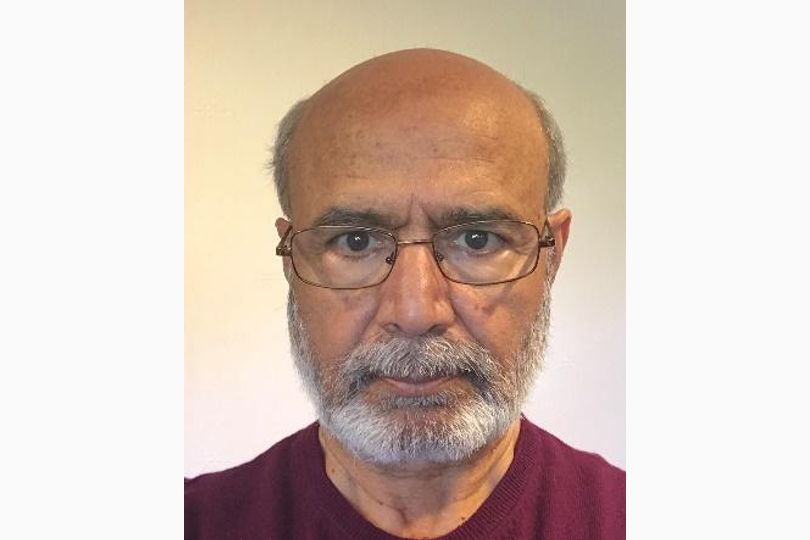Interview With Dr. Prasanna Chandra Gautam, Author of "The Story of Indian Philosophy"
on Jul 19, 2022

Frontlist - What does Indian Philosophy teach us regarding the quality of life? Why is it important for young generations to connect with Indian Philosophy?
Dr. Gautam - “Quality of Life” is a modern concept. One is thought to have a good quality of life if one has sophisticated physical amenities, sufficient wealth, and other resources. The emphasis is on pleasurable living in comfort and possessing as much luxury as possible. The ancient concept of “Quality of Living” emphasises a lifestyle in which equanimity, peace, tranquillity, and spiritual enhancement are actively sought and practised. Physical and luxurious amenities are not considered as important. There is nothing wrong with the former concept as one is prepared to accept the risk of mental breakdown, other manifestations of severely stressful conditions and conflicts, and disharmony. The latter lifestyle also can precipitate a sense of disaffection, failure, and a feeling of inadequacy within oneself, particularly when overwhelmed by peer pressure and the demands of society. Buddha suggested a middle way, balancing your life in the best possible way. Many call this a “Simple Living” – awareness of both these concepts can help a young person to choose the lifestyle that appears most acceptable.
Frontlist - If we look at the concept of Nihilism and Indian religious & moral principles, they are paradoxical to each other. What would you like to say in this context?
Dr. Gautam - Nihilism, nowadays, is attributed to the German philosopher Nietzsche who was probably alarmed by the decline of Christianity in Europe. “Nothing really meant anything.” But the concept in its widest scope has been debated since the Vedic items, nearly six thousand years ago. The Mantras have questioned the reality of everything and could not come to any conclusion. They could only say that the ultimate reality was “neither this,” “nor that.” Neti, Neti. The Upanishad era brought out the concept that the reality of everything was Brahma. The philosophers who sought proof questioned further. They asked, “Who sees that who is unseen but sees everything?” Buddha simplified this by teaching that the reality of everything was impermanence. The Madhyamika school of Buddhist philosophy stretched this teaching to its wildest imagination by bringing out the theory of Sunyabad (roughly translated as nihilism). This philosopher was Nagarjuna, who was born about 1500 years before Nietzsche. The Brahmins began to teach that everything was... or illusion. The quantum physicist discussing the formation of matter, the wave and particle theory, suggests that everything may be the manifestation of energy. I have asked whether we are, therefore, just holograms.
Frontlist - How do you consider yourself as an iconoclast or a pious person? Please elucidate it.
Dr. Gautam - Iconoclast suggests a person who is an atheist with a destructive personality, thus denoting a negative trait. A religious person is thought to be pious. I do not belong to either category, I am a student of science and my job for forty years was to help the sick. I did not destroy but mended their body and mind. Science leads us to the truth. The organised religions of the world are based on faith. The search for truth may be disconcerting to the traditionalists who practice their faith blindly without question. They may consider me to be an iconoclast. I do not conform to any organised religion and have been a pious person. Your question reminds me of an aphorism of the great thinker Sri Aurobindo, who said that searching for truth often leads to some degree of agnosticism.
Frontlist - When did you start your journey with Indian Philosophy? Who motivated you the most to explore the complexities of Indian civilizations and their evolutions?
Dr. Gautam - I became interested to know about religions and spirituality after reading the lectures of Swami Vivekananda when I was a young boy. At the age of seventeen, I shifted to Ramakrishna Mission Hostel to enhance my mind and build my body", according to the teachings of this great man. The Swamis' arrogance, the religion's rigidity, and subsequently, the misinterpretation and fallacy seen in the commentaries in English, Hindi, and Nepali prompted me to self-study. I have been able to devote much of my time to learning these concepts since retirement.
Frontlist -The notion of understanding religion nowadays is being altered due to religious leaders. They trick people in the name of God to display themselves as a figure of holy saints. What are your thoughts on this?
Dr. Gautam - Swami Vivekananda noticed this and told the parable of Two Frogs. There is not much difference or significant change in the practice of organised religions and their leaders. However, the visible differences are in social media usage by modern religious readers and their desire to tour foreign parts.
Frontlist - What is the main idea behind writing this book? What may this book offer someone who has never read any Indian philosophical works?
Dr. Gautam - As I have explained in my prefaces, I have systematically documented the evolution of philosophy in the subcontinent factually and scientifically, giving reference and context. This has, hopefully, made Indian Philosophy easily comprehensible to any readers. Besides trying to make this an easy read, I was also hoping that this vast knowledge could provide some answers to the ills of our times. This might show the way for the younger generation to leave this world in a better state for their children. The destitution, death, and deprivation in the wealthiest nations prompted me to seek their answers.
Frontlist - How are Contemporary Preachers different from ancient preachers? Where do these philosophical theories stand in the self-centered world?
Dr. Gautam - The contemporary Gurus appear to me to be exceptionally gifted! They seem to know the answer to every question. They also appear to have a very self-satisfying “Quality of Life.” There were fake and genuine gurus in ancient times, which we can find by reading some Smritis or Sastras. To me, a genuine Guru is one who envelopes you to think, finds answers to your questions, and enhances your innate mental ability and self-confidence. A fake Guru does the opposite by teaching you half-truths and false things, making you more fearful and dependent on others, mostly himself or herself. It is easier to shun one’s responsibility by saying it is “God’s will” or “Baba/Swamiji/Mata will set it right” than doing your duty yourself. Fake gurus appear to teach self-hypnosis, too, to a large extent.
Frontlist - If you lie for someone else’s good sake, it isn’t a lie. However, a lie is a lie. It is just a way to manipulate ourselves and others. Please share your thoughts.
Dr. Gautam - The traditional teaching has never been to accept that telling lies is ok! The Upanishad says, “Maa bruyaat satamapririm.” Do not tell the truth in an unpalatable manner. Our motto has been “Satyameva Jayate Nanritam.” Ultimately, the truth prevails; none else.

.jpg)
.jpg)
.jpg)
.jpg)
.jpg)

.jpg)
.jpg)
.jpg)
.jpg)
.jpg)


_(1).jpg)
.jpg)











Sorry! No comment found for this post.